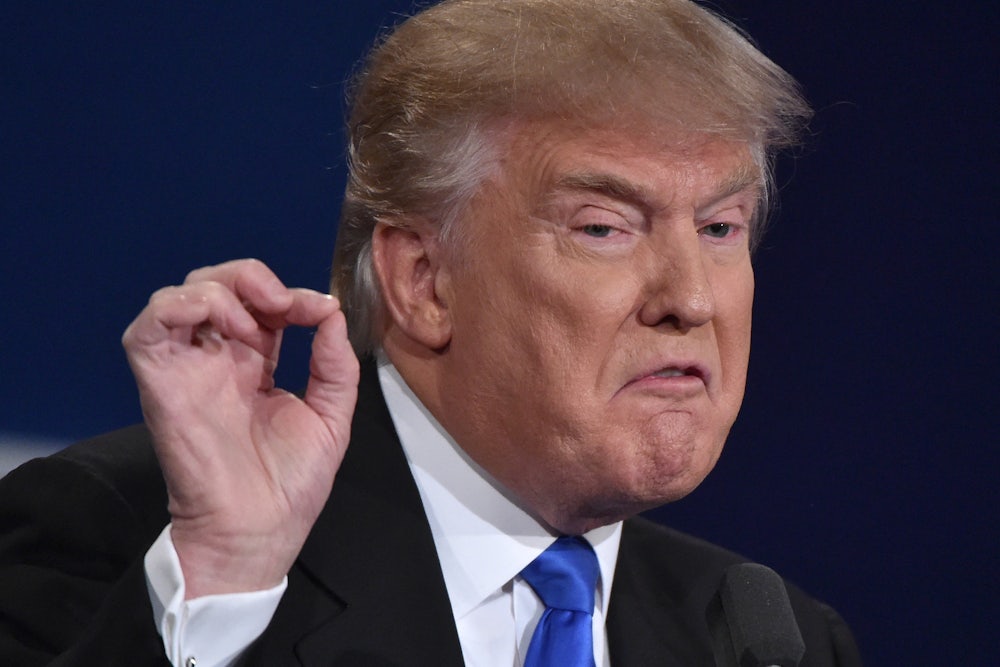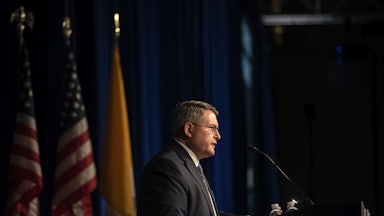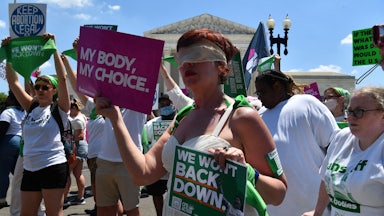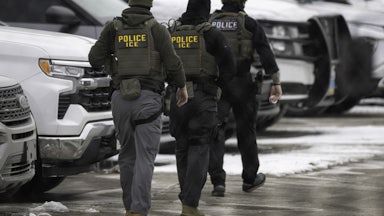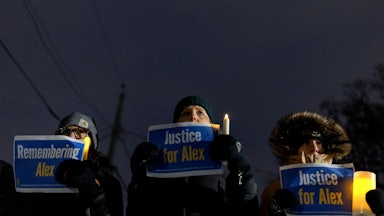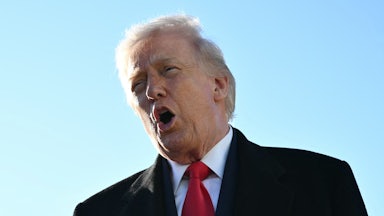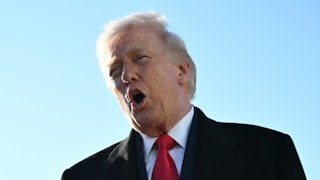Leonard Leo, the bête noire of liberals who curated Trump’s first-term judicial appointments, including his three Supreme Court justices, has gone from Trump’s short list to his shit list.
As is his wont, Trump turned on his loyal servant with particular savagery, calling him a “sleaze bag” who had rendered bad advice on a series of judicial nominations.
Leo responded with comparative good grace, along with a pointed, if diplomatic, defense of his influential work: “I’m very grateful for President Trump transforming the Federal Courts.… The Federal Judiciary is better than it’s ever been in modern history, and that will be President Trump’s most important legacy.”
The genesis of the fallout speaks volumes about Trump’s view of the role of the federal judiciary, and of his own inner circle.
Trump’s ire was sparked by the recent decision of the Court of International Trade striking down his broad tariffs because they had unlawfully usurped Congress’s powers and relied on supposed “emergency” powers under the International Emergency Economic Powers Act, or IEEPA, that the Act does not provide.
Both legal failings are cross-cutting themes of Trump’s indiscriminate power grabs. Like a number of modern would-be authoritarians, Trump has repeatedly tried to steamroll basic legislative authority by characterizing everyday political issues as emergencies requiring a strongman’s intervention.
Trump’s temper tantrum is ironic, if not absurd.
The opinion that set him off was a unanimous per curiam (i.e., no single author was identified) by three members of the Court of International Trade: a Reagan appointee, an Obama appointee, and a Trump appointee.
Moreover, the Trump appointee, Timothy Reif, is—as Trump appointees go—unusually well qualified, having previously served as general counsel in the Office of the U.S. Trade Representative, or USTR, in the executive office of the president and then senior counselor to the USTR.
The panel, including Reif, held that the IEEPA—the text of which doesn’t even contain the word emergency—could not support Trump’s outlandish and all-too-familiar claims that the sky is falling. At the same time, the court noted the possibility of statutory sources of authority other than the one Trump invoked.
In response to the administration’s predictable motion for emergency relief, the Federal Circuit, the court of appeals for the specialized Court of International Trade, has imposed an administrative stay that tells us nothing about whether it will affirm the lower court on the merits.
Trump’s pique is all the more off the mark given Leo’s record as the administration’s judicial nominee whisperer. By any measure—on the left or the right, and whether provoking aversion or elation—Leo has compiled a phenomenally successful record in the service of Trump and the conservative judicial movement in general.
He follows in the footsteps of advisers to other Republican administrations since Reagan, which have adopted a single-minded focus on judicial appointees and have dramatically transformed the makeup of the federal judiciary.
In Leo’s case, that includes Trump’s three Supreme Court nominees: Neil Gorsuch, Brett Kavanaugh, and Amy Coney Barrett.
Conservative Trump supporters have generally taken those appointees—which have established an uber-majority conservative court likely to last for a generation or more—as back-to-back-to-back home runs.
Just for starters, all three of them voted to overrule Roe v. Wade, probably the number one goal of judicial conservatives for a generation, and a (dubious) achievement that for many years looked impossible.
In terms of personal bounty for Trump, all joined the outlandish 2024 immunity opinion that continues to provide him comfort on a regular basis—for example just last week, with Trump’s pardon for Paul Walczak, in the wake of a $1 million solicited donation by Walczak’s mother, which fits the federal criminal elements of bribery to a T.
Leo has joined a very long list of former insiders whom Trump has abruptly cast out and vilified. Central advisers such as Mike Pence, Chris Christie, Anthony Scaramucci, Kayleigh McEnany, Mick Mulvaney, John Bolton, and many others have all tasted Trump’s poison, some for reasons that are minor or even mysterious.
The larger lesson in Trump’s excoriation of Leo is what it shows about Trump’s expectations of the purpose of screening his nominees.
Leo has served up a long series of candidates who talk the talk about conservative jurisprudence, including originalism and more recent articles of faith such as robust Second Amendment interpretation, solicitude for free exercise of rights, and the Supreme Court’s less than fully coherent history-and-tradition test (or tests).
That doesn’t cut it for Trump. One important opinion that goes against him—plainly on the basis of well-established legal principles that any judicial conservative should embrace—and Leo gets moved to the other list, with a heavy dose of Trump’s obloquy for good measure.
For Trump, there’s only one test of judicial qualifications: ruling for Trump, whatever the law provides. Leo failed in his presumed duty to find absolute Trump toadies, or to quietly inculcate the potential toadies he did find.
The general agenda of Trump 2.0—outlined by the long blueprint of Project 2025—is to put in place a series of measures that grossly, and unconstitutionally, aggrandize Trump’s personal power, rejecting any vestiges of restraint and lawfulness that stymied Trump the first time around.
Transposed to the federal judiciary, that means a careful search for judges like Aileen Cannon or Matt Kacsmaryk, who—not to put too fine a point on it—are utterly in the tank for the president who appointed them and who could yet elevate them to higher judicial service.
For a few reasons, the Trump 2.0 judicial nomination process has little to show for itself; the Senate has confirmed none of his 11 federal court nominees this year.
Leo’s casting out thus portends a series of nominees this time around carefully chosen to cross fingers behind their backs when they swear, as the law requires, to “administer justice without respect to persons.” Call it the attempted Cannonization of the federal judiciary—and, to the extent Trump can secure Senate confirmations for his nominees, one more sharp departure from the rule of law.
